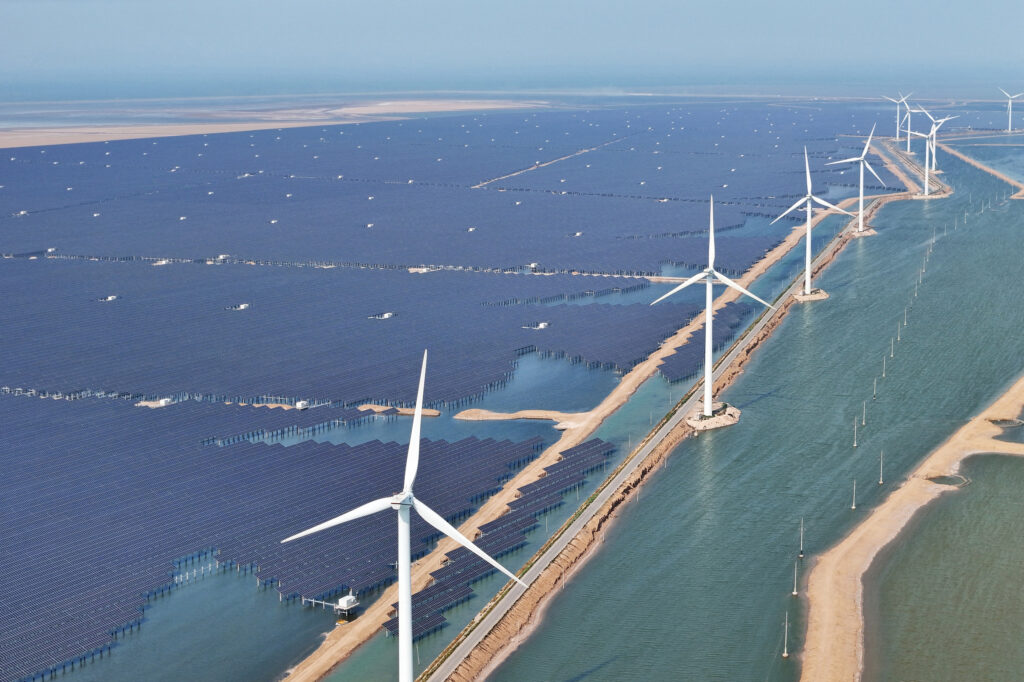The Alabama Public Service Commission has rejected the latest bid for public participation into how it sets electricity fuel cost rates, despite a state law granting the right to intervene in “any proceeding before the commission.”
The commission last month rejected a motion by Energy Alabama, a clean energy advocacy group, to intervene in the docket that determines how much Alabama Power charges customers for fuel costs, finding that the matter was not an official “proceeding” of the commission.
Alabama law says that “[E]very person, firm, corporation, copartnership, association, or organization affected” by electricity rates in the state “may by petition intervene and become a party to any proceeding before the commission.”
In its Nov. 23 ruling, the commission held that issuing orders that change the rate Alabama Power charges its customers for fuel does not amount to a “proceeding.”
“The Commission disagrees with Energy Alabama’s view that the identified activities in [the docket], establish a proceeding as that term is used in [the Alabama code],” the commission ruled.
The commission held that its “routine status reports and intermittent consent orders” did not amount to “the commencement, reactivation or continuation of a proceeding that is pending per the Commission’s rules,” even though those consent orders can and do raise customers’ electric bills.
Daniel Tait, executive director of Energy Alabama, said that the docket, precisely because it does affect customers’ payments, means that the process should be open to the public.
“Rates are changing based on what happens in here,” Tait told Inside Climate News, referring to the fuel rate docket. “This is a proceeding. This is something that anybody has a right to intervene in under law. But they argued otherwise.”
According to the commission, there has not been an official proceeding over Alabama Power’s fuel costs since 2008.
Instead, Alabama Power files monthly reports to the commission on its coal, natural gas and nuclear fuel costs and the amount of electricity generated by each fuel. The commission then periodically issues consent orders changing the rate that shows up on customers’ bills.
Alabama Power spokesperson Alyson Tucker said the company does not profit from money collected for fuel costs. If the company collects too much or too little money for fuel costs, the commission adjusts the future rate to make up the difference, and in at least one instance has given customers a direct refund.
Energy Alabama first filed a motion to intervene in the fuel rates docket on May 3. The commission rejected that motion on Aug. 30, citing the lack of a current proceeding. Energy Alabama petitioned for reconsideration of that decision on Sept. 30. The commission rejected that appeal on Nov. 23.
In both rejections, the commission called Energy Alabama’s motion to intervene untimely because the last activity in the docket occurred 16 years ago.
Tait said he was surprised by the commission’s initial rejection of the motion to intervene. Energy Alabama has intervened in numerous other dockets before the commission without incident.
“I didn’t think it was going to be a fight,” Tait said. “I thought this one was pretty clear cut. … For the power company and the Public Service Commission to say with a straight face that no one deserves to have a say or even be in the room when one of the biggest factors in a utility bill is decided, that’s crazy to me.”
A spokesman for the Public Service Commission said the panel “does not comment on matters that are, or could be, subject to litigation.”
Tucker said Alabama Power could not comment on matters before the commission, but the company filed a formal response to Energy Alabama’s September motion for reconsideration.
“Every rate schedule and rate rider Alabama Power has on file with the Commission has a corresponding docket,” the company’s response said. “All of them are subject to the ongoing oversight of the Commission, through its Staff. Some require annual filings for compliance review purposes…
“The occurrence of such submissions or associated actions taken by the Commission Staff does not mean there is a pending proceeding in the corresponding dockets.”
The commission echoed the power company’s logic in its ultimate decision.
“For the power company and the Public Service Commission to say with a straight face that no one deserves to have a say or even be in the room when one of the biggest factors in a utility bill is decided, that’s crazy to me.”
— Daniel Tait, Energy Alabama executive director
Christina Tidwell, a senior attorney of the Southern Environmental Law Center, which represents Energy Alabama in the matter, told Inside Climate News that public insight into the process would better show the actual costs of fossil fuels.
“Alabama Power customers are paying for Alabama Power’s decisions to invest in fossil fuels like methane gas, which are prone to price volatility, and then the costs associated with those fuels are passed down to customers,” Tidwell said. “There are less costly, less risky resource options out there that are not prone to price volatility because they don’t have fuels, like solar or wind.”
Alabama Power provides electricity to about two thirds of the state, with the Tennessee Valley Authority distributing power in northern parts of the state. Alabama Power is a subsidiary of Southern Company, which also operates Georgia Power and Mississippi Power, along with Southern Power and Southern Natural Gas.
“Trust Us”
The Alabama Public Service Commission is the primary regulator of Alabama Power and other utilities in the state, but not the federally operated TVA. Its members are elected by statewide ballot, with all three seats held by Republicans.
In November’s general election, Commission President Twinkle Andress Cavanaugh ran unopposed because the Democratic Party of Alabama did not nominate a candidate to challenge her. There were, however, nearly 42,000 write-in votes for PSC President, the most of any race on the ballot.

Many critics of the Alabama Public Service Commission cite a lack of transparency among their chief complaints. The Commission has not held a formal rate hearing for Alabama Power since 1982, instead relying on “informal rate hearings” that critics say lack the transparency and public engagement of similar proceedings in other states.
Tait, of Energy Alabama, said the public deserves more information and input about how the company purchases fuel and passes the expenses along to customers.
“This whole process is just them saying, ‘Trust us, we promise everything is good,’” Tait said.
“The people deserve to have somebody that’s actually looking at these calculations and making sure that filings are correct. Is this really the best deal that we’re getting right now? We don’t know. We’ve never seen the records. Nobody can see the records.”
This story is funded by readers like you.
Our nonprofit newsroom provides award-winning climate coverage free of charge and advertising. We rely on donations from readers like you to keep going. Please donate now to support our work.
Donate Now
Southeast’s Highest Electricity Rate
More eyes will be on the commission this week, as it hosts its annual informal rate hearings for Alabama Power on Tuesday in Montgomery. These hearings are not formal proceedings of the commission, but are meant to substitute for formal rate hearings that take place in most utility commissions.
Alabama Power representatives make presentations about the company’s finances, resource mix and environmental compliance activities such as coal plant modifications or coal ash clean-up. Rate increases are often announced to the public at these hearings, which usually last about three hours.
Advocates criticize the commission’s overall lack of transparency, noting that the Georgia Public Service Commission, as one example, hosts much more stringent rate cases.
When Georgia utilities request a rate increase, the commission employs special public interest advocacy staff which “essentially prosecutes the case, usually opposing the utility’s rate request,” according to the Georgia commission’s website.
These public interest staff are able to cross-examine sworn company witnesses in public hearings, and outside parties may intervene and also question those witnesses before a rate increase is approved.
Such a process does not exist in Alabama, where rates are negotiated between the commission and the company and later announced at informal public hearings.
According to the U.S. Energy Information Administration, in September Alabama had the highest average price of residential electricity in the Southeast at $15.35 per kilowatt hour. Georgia’s average price was $13.70 per kWh.
Mississippi, Tennessee, Arkansas, Louisiana and Kentucky all had lower rates than Georgia, while Florida, North Carolina and South Carolina were higher than Georgia but lower than Alabama.
About This Story
Perhaps you noticed: This story, like all the news we publish, is free to read. That’s because Inside Climate News is a 501c3 nonprofit organization. We do not charge a subscription fee, lock our news behind a paywall, or clutter our website with ads. We make our news on climate and the environment freely available to you and anyone who wants it.
That’s not all. We also share our news for free with scores of other media organizations around the country. Many of them can’t afford to do environmental journalism of their own. We’ve built bureaus from coast to coast to report local stories, collaborate with local newsrooms and co-publish articles so that this vital work is shared as widely as possible.
Two of us launched ICN in 2007. Six years later we earned a Pulitzer Prize for National Reporting, and now we run the oldest and largest dedicated climate newsroom in the nation. We tell the story in all its complexity. We hold polluters accountable. We expose environmental injustice. We debunk misinformation. We scrutinize solutions and inspire action.
Donations from readers like you fund every aspect of what we do. If you don’t already, will you support our ongoing work, our reporting on the biggest crisis facing our planet, and help us reach even more readers in more places?
Please take a moment to make a tax-deductible donation. Every one of them makes a difference.
Thank you,

















